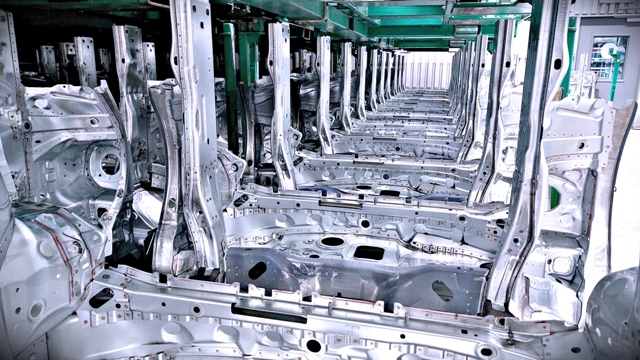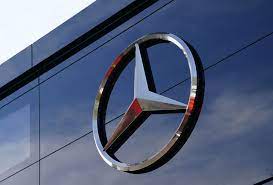
Mercedes to source CO₂-reduced European steel
(Oilandgaspress) Mercedes-Benz is aiming to use more than 200,000 tons of CO₂-reduced steel from European suppliers in its press shops annually. The roll-out of a sustainable steel supply chain in Europe will serve as a blueprint for other regions. Steel accounts for up to 20% of the total CO₂ emissions in the production of an electric vehicle. With the supply agreements, Mercedes-Benz achieved another milestone towards its ambitious climate protection goal “Ambition 2039”: By 2030 at the latest, Mercedes-Benz Cars aims to at least halve the average CO₂ emissions per passenger car in the new vehicle fleet compared to 2020, across the entire life cycle from raw material procurement to use and recycling.

Steel production in transition
In conventional primary steel production, which uses blast furnaces and basic oxygen furnaces, the production of one tonne of steel generates more than two tonnes of CO₂ on average. If a direct reduction process is combined with the steel making in an electric arc furnace (EAF), rather than coke-based blast furnace production, CO₂ emissions can be significantly reduced. In a natural-gas-based direct reduction process, carbon monoxide and hydrogen dissolve the oxygen from the iron ore. In the electric arc furnace, the direct-reduced iron is melted directly into steel together with steel scrap. If green hydrogen and renewable energies are used instead of natural gas to operate the electric arc furnace during direct reduction emissions can be reduced even further, resulting in almost CO₂-free steel.
Mercedes-Benz and thyssenkrupp Steel are jointly reducing the CO₂ footprint in the steel supply chain
Mercedes-Benz and thyssenkrupp Steel have signed a letter of intent for the procurement of CO₂-reduced steel. The two companies have agreed that the entire production process for CO₂-reduced steel products to be almost CO₂-free in future, using direct reduction plants in conjunction with innovative smelters – subject to the availability of green hydrogen. Thyssenkrupp plans to commission the first direct reduction plant in 2026 and then subsequently supply Mercedes-Benz.
Information Source: Read More
Energy Monitors , Electric Power , Natural Gas , Oil , Climate , Renewable , Wind , Transition , LPG , Solar , Electric , Biomass , Sustainability , Oil Price , Electric Vehicles,


